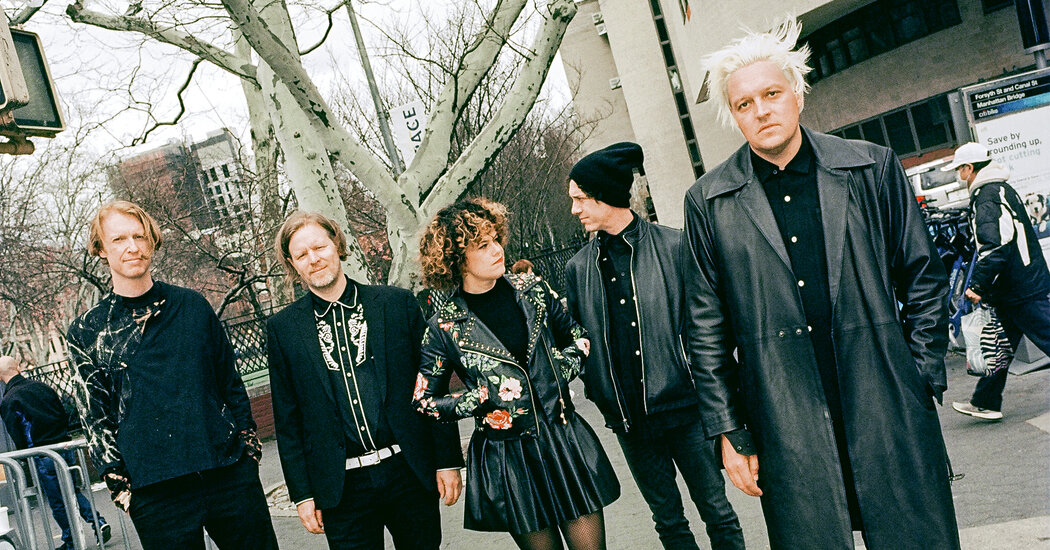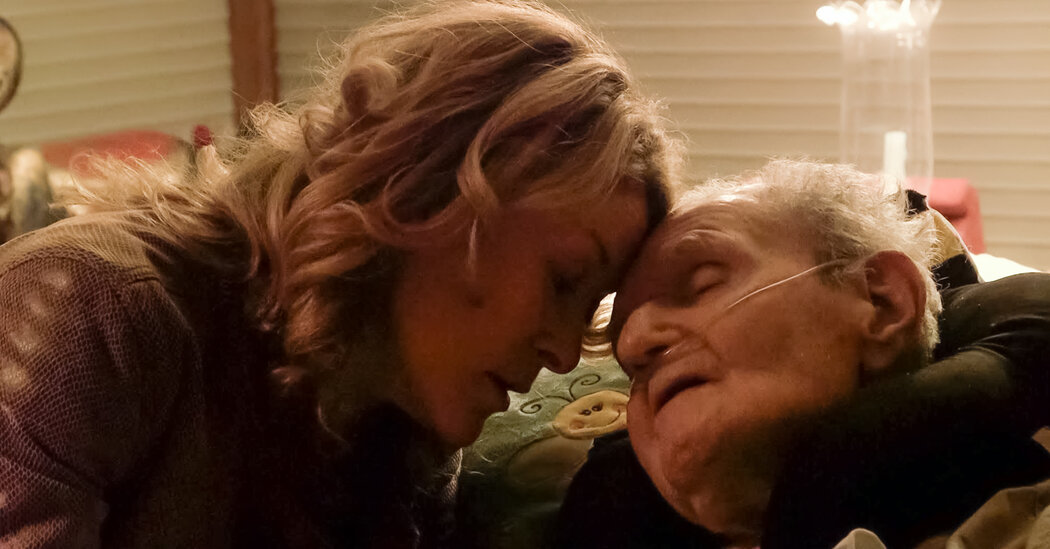
“When things blow up, the sharks come around,” Chassagne said with a laugh. “We know what we want to do, and so you don’t get impressed by checks and promises.” (Butler noted they “probably met about 20 people” who claimed to have signed Nirvana after “Funeral” blew up.)
After the 2013 album “Reflektor,” Butler and Chassagne relocated to New Orleans, where they’d fallen in love with the local culture (as well as its relative proximity to Haiti, where Chassagne’s family originates), while the rest of the band remained in Montreal. The backlash to its follow-up, “Everything Now,” didn’t prompt “massive internal change,” Parry said, but noted, “It was the first time we’d been outside of an arm’s length from each other, and that had much more of an impact on the band.”
Kingsbury agreed. “It coincided with the time in everyone’s life when we were in our mid-30s, and children were appearing,” he said in a video interview. (Butler, now 42, and Chassagne, 45, have a 9-year-old son.) As a result, he said, on the band’s most recent albums “there’s certain aspects that are less all of us and a little more of them.”
At the beginning of the Covid-19 pandemic, border restrictions prevented the group from meeting in person, and working over Zoom proved fruitless. Butler said he and Chassagne challenged themselves to envision every song on “We” without production or drums, in case they were forced to make the album without the rest of the band. (Early on, Josh Tillman, who performs as Father John Misty, flew in from Los Angeles to act as a sounding board.) The band was subsequently able to convene in El Paso, Texas, in the fall of 2020, and again the following summer in Maine.
Butler and Chassagne are constantly working on new music. “Our process is just our life,” he said, noting that Chassagne doesn’t receive enough credit for the band’s output. “Régine has this magical ability to remember almost anything we’ve ever done. It’s always coexisting at the same time; some songs take 20 years to write, some songs take 20 minutes.” During our conversation, Butler spoke often about time, musing about what it takes for a restaurant to stay open for 100 years (“There’s something to be said for just executing something”), and lamenting the strict standards that new artists are judged by (“I hope there’s still a space in the world for a band to make a bunch of crappy records, and have their fifth record be genius”).




